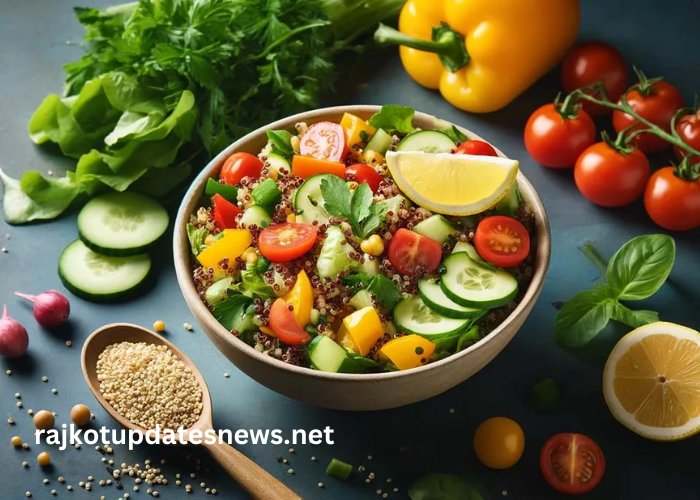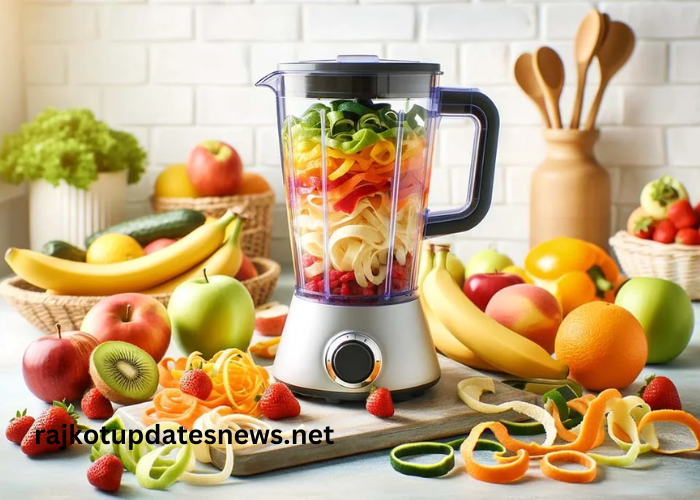Incorporating adequate protein into a vegetarian diet is crucial for maintaining health and supporting various bodily functions. Unlike meat-based diets, vegetarian diets require careful selection of protein sources to ensure sufficient intake. This guide explores a variety of high-protein vegetarian foods, their nutritional benefits, and practical ways to include them in your diet.
Understanding Protein and Its Importance
What Is Protein?
Protein is a macronutrient made up of amino acids, which are essential for building and repairing tissues, producing enzymes and hormones, and supporting overall bodily functions. It plays a vital role in maintaining muscle mass, immune function, and overall health.
Recommended Protein Intake
The recommended dietary allowance (RDA) for protein varies based on age, sex, and activity level. For most adults, it is about 46 grams per day for women and 56 grams per day for men. Athletes or individuals with higher physical demands may require more protein.
Top Vegetarian Protein Sources
Legumes and Pulses
- Lentils: Lentils are an excellent source of protein, with about 18 grams per cooked cup. They also provide fiber, iron, and folate. Incorporate lentils into soups, stews, and salads for a protein boost.
- Chickpeas: Also known as garbanzo beans, chickpeas offer around 15 grams of protein per cooked cup. They are versatile and can be used in dishes like hummus, curries, and salads.
- Black Beans: Black beans provide approximately 15 grams of protein per cooked cup and are rich in fiber, antioxidants, and vitamins. They are great in chili, soups, and as a side dish.
Nuts and Seeds
- Almonds: Almonds are a protein-rich nut, offering around 6 grams per ounce. They are also high in healthy fats, vitamin E, and magnesium. Enjoy them as a snack or add them to oatmeal and salads.
- Chia Seeds: Chia seeds provide about 4 grams of protein per ounce and are packed with omega-3 fatty acids, fiber, and antioxidants. Add them to smoothies, yogurt, or baked goods.
- Hemp Seeds: With approximately 10 grams of protein per ounce, hemp seeds are a complete protein source, meaning they provide all nine essential amino acids. Sprinkle them on salads, cereals, or blend into smoothies.
Whole Grains
- Quinoa: Quinoa is a complete protein, offering about 8 grams per cooked cup. It contains all nine essential amino acids and is also rich in fiber, magnesium, and iron. Use quinoa as a base for salads or as a side dish.
- Buckwheat: Buckwheat provides around 6 grams of protein per cooked cup and is also high in antioxidants and fiber. It can be used in pancakes, porridge, or as a rice alternative.
- Oats: Oats contain about 6 grams of protein per cooked cup and are rich in fiber, particularly beta-glucan, which supports heart health. Enjoy oats in breakfast bowls, smoothies, or baked goods.
Soy Products
- Tofu: Tofu is a versatile protein source, offering about 10 grams per half-cup serving. It can be used in a variety of dishes, from stir-fries to smoothies, and comes in different textures to suit various recipes.
- Tempeh: Tempeh provides approximately 15 grams of protein per half-cup serving and is also a good source of probiotics. It can be marinated and grilled or used in stir-fries and salads.
- Edamame: Edamame, or young soybeans, contain about 17 grams of protein per cup. They are also rich in vitamins and minerals. Enjoy them as a snack or add them to salads and soups.
Combining Protein Sources
Complementary Proteins
To ensure you get all essential amino acids, combine different plant-based protein sources. For example, pairing beans with rice or quinoa with vegetables can create a complete protein profile. This approach ensures that you meet your protein needs while enjoying a varied diet.
Balanced Meals
Incorporate a mix of protein sources in each meal to maintain balanced nutrition. Combining legumes, grains, nuts, and seeds can help you achieve a well-rounded intake of amino acids and other nutrients.
Practical Tips for Including Vegetarian Proteins in Your Diet
Meal Planning
Plan your meals to include a variety of protein sources throughout the week. This approach not only helps meet your protein needs but also ensures a diverse intake of nutrients.
Snack Ideas
Opt for high-protein snacks such as nuts, seeds, and protein bars. These snacks can help keep you satisfied between meals and provide an additional protein boost.
Recipes and Cooking Tips
Experiment with recipes that incorporate vegetarian protein sources. Try adding lentils to soups, chickpeas to salads, or tofu to stir-fries. Use herbs and spices to enhance flavors and make meals more enjoyable.
Benefits of a Vegetarian Protein Diet
Health Benefits
A diet rich in vegetarian proteins can support overall health by providing essential nutrients, supporting muscle growth, and aiding in weight management. It can also reduce the risk of chronic diseases such as heart disease and diabetes.
Environmental Impact
Choosing plant-based protein sources can have a positive impact on the environment. Plant-based diets typically require fewer resources and have a lower carbon footprint compared to meat-based diets.
Addressing Common Concerns
Protein Quality
While plant-based proteins are effective, some may question their completeness compared to animal proteins. By consuming a variety of plant-based proteins, you can ensure a complete amino acid profile and adequate protein intake.
Digestibility
Some individuals may find plant-based proteins harder to digest. To improve digestion, soak legumes, cook grains thoroughly, and use digestive aids like ginger and turmeric.
Conclusion
Vegetarian protein sources offer numerous benefits, from supporting overall health to contributing to environmental sustainability. By incorporating a variety of plant-based proteins into your diet, you can ensure a balanced and nutritious approach to meeting your protein needs.
Embrace the diversity of vegetarian proteins, experiment with new recipes, and enjoy the many advantages of a plant-based diet. With thoughtful meal planning and a commitment to incorporating high-quality protein sources, you can maintain a healthy, satisfying, and sustainable diet.

